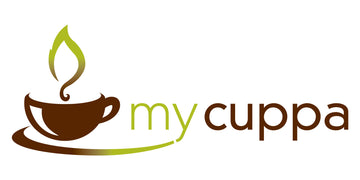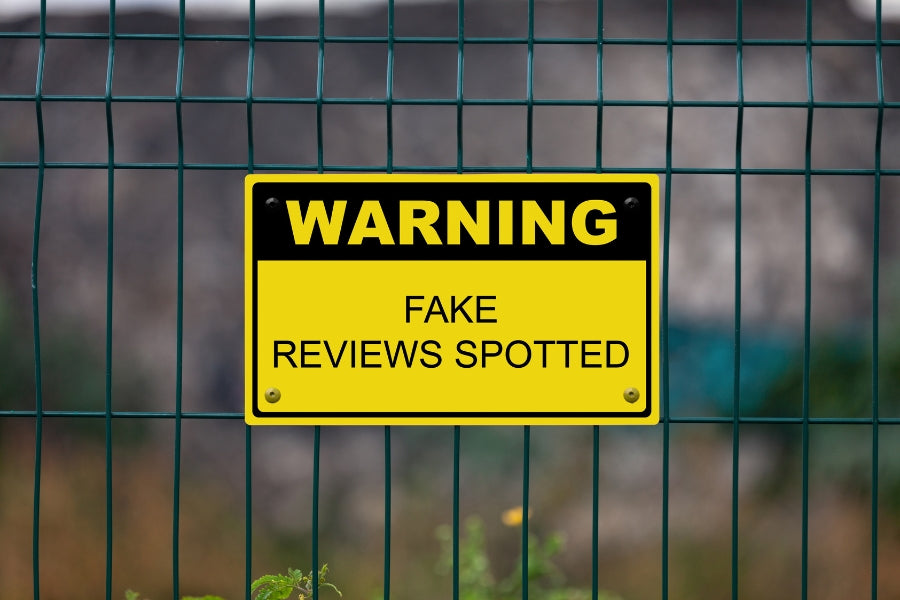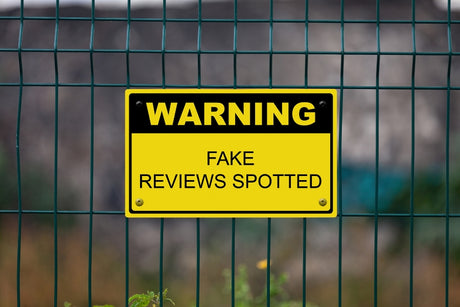Fake likes and followers on social media have been something that people seem to deal with as it's often not materially impacting much that affects us in the "real" world.
Some platforms are even changing how they present such attributes by obscuring likes to avoid the potential feelings of anxiety or inadequacy that can develop from users comparing their own experiences to others.
Please read our blog on how fake reviews might fool you into submitting to their charms.
Most consumers now heavily rely on reviews to guide their decisions, but it's important to note that comments and claims may be one-sided, unverified, unmoderated or anonymous.
Reviews have always been a feature in online platforms for a long time - eBay, Amazon, etc. drive seller performance metrics on the knife-edge decisions of buyer reviews and ratings.
In those marketplaces, often, this builds unfair leverage with sellers or merchants at the mercy of a buyer holding a frighteningly.
This power imbalance is exacerbated when merchants rely on third-party shipping providers, which may cause delays outside the merchant's control.
Reputation is critically important in the ways to ascribe value to a brand.
In the game of business life, there are all sorts of weird and whacky incidents that can get thrown at you, and there are some really interesting people out there with warped ideas on what is fair or even reasonable.
After 17 years of running online businesses, we have witnessed extreme behaviours that cannot be presented as balanced.
There has been a noticeable trend during 2018 and 2019 for online merchants to build vast arsenals of reviews that ironically reflect a positive level for the success of their brands. Similar parallels exist to how likes and followers were regarded as key or important success metrics on social media.
Nowhere was this more palpable than the raft of new coffee capsule and pod sellers sporting thousands of incredibly happy customer reviews in just a few months of operation.
It raises some suspicion because I've never seen a deliriously happy coffee capsule drinker, and bribing customers to provide glowingly positive reviews is reaching new levels of grubby desperation.
There is no doubt the network effect of great reviews will boost a company's chances of growth, and it's a short-term game for most: get in, make a killing and get out before anyone finds out the real truth.
Conversely, companies are trying to hustle in on the "review" hysteria by attempting to insert themselves into the middle as a "broker" of review health.
For a fee, which is always required to be paid each month, just like criminal standover, these reputation intermediaries will "manage your online conscience", which means, in simple terms, you pay them a ransom to remove negative reviews from their platform (or other platforms, although that's not always easy).
This scheme, or scam, is largely bait.
They set up negative reviews, prey on brands by inflicting emotional anguish, and then offer a solution to remove the pain for a fee. Sound familiar?
Then there are the early morning email proposals, which come in overnight at 3 am from some lark overseas pretending to be in Australia.
Calling these messages proposals is far too generous as the offering is always similar - they can add 10,000 reviews to our site for a small fee never disclosed upfront.
Many fake House of Cards review lists are built similarly, so we refrain from pursuing or soliciting reviews on our website.
People are often busy and unwilling to provide feedback unless they receive some incentive.
No company can exist without the occasional "incident" with a customer.
Most companies, like us, try to resolve matters fairly and reasonably, as the cost of dealing with an incident is often much higher than the cost of replacement. Still, sometimes, it escalates, and emotions drive behaviour.
Consumers must exercise caution when relying too heavily upon reviews to influence their choices.
Reading reviews has some positive aspects, such as picking a hotel, planning a holiday destination or visiting a restaurant.
However, the context of studies can be polarizing and creating a sense of paralyzing indecision.
For every glowing review, an unfavourable review will seek to damage someone's hard work.
Nobody goes into business these days without the intent of trying to do something good. It's bloody hard work, expensive and a significant personal sacrifice, regardless of the market or industry.
So, it's a shame all that anonymous comments and unsubstantiated claims can rapidly undo effort. In the meantime, we can roast the best specialty coffee beans.









